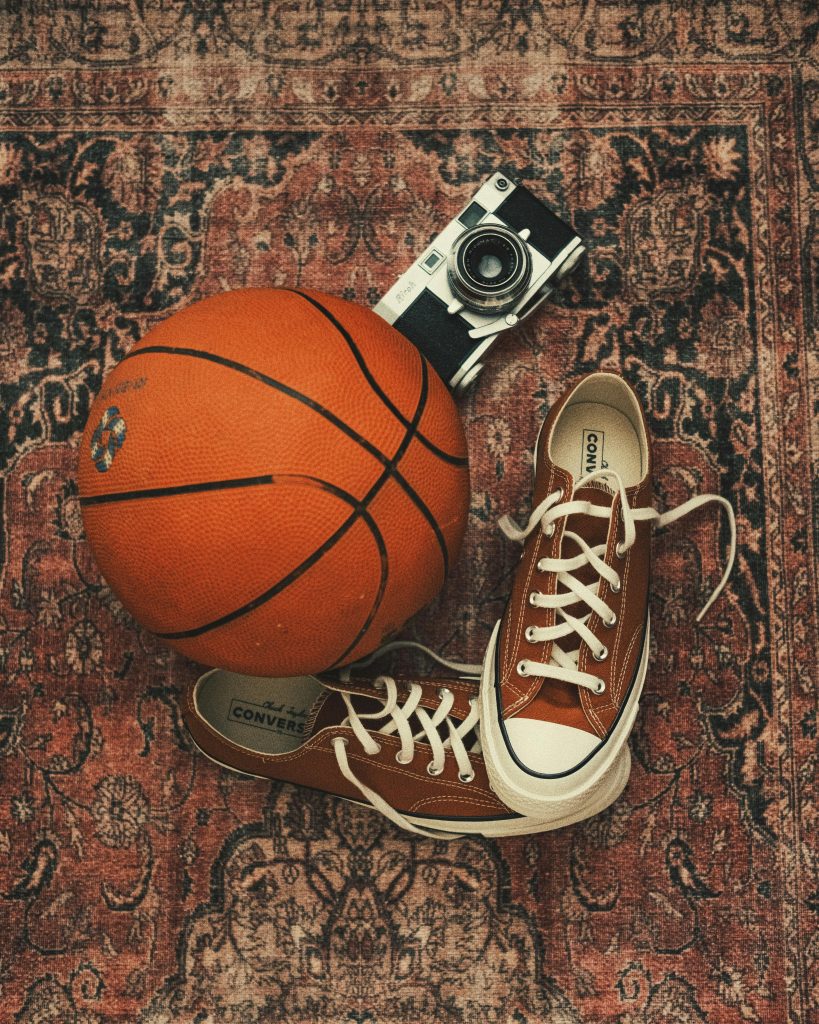In this article, we will take a closer look at various brands’ unique approaches to women’s sneakers. From classic designs to innovative styles, each brand brings its own flair to the table. We will examine how these brands cater to the diverse needs and preferences of women in the sneaker market. So, whether you are a sneaker enthusiast or simply curious about the evolving trends in women’s footwear, this article will provide you with an insightful and captivating analysis. So, sit back, relax, and let’s jump into the fascinating world of women’s sneakers!
Brands’ Approach to Women’s Sneakers
When it comes to women’s sneakers, brands have taken various approaches to cater to the diverse needs and preferences of their female customers. From innovative designs to targeted marketing strategies, here is a comprehensive analysis of how different brands are capturing the attention of women in the sneaker market.
Innovation in Design
One of the key factors that sets brands apart in the women’s sneaker market is their approach to design. Brands such as Nike, Adidas, and Puma have been at the forefront of creating unique sneaker silhouettes that cater specifically to women. These sneakers often feature sleeker profiles and more feminine shapes, providing a departure from the traditionally bulky and masculine designs.
In addition to the overall silhouette, brands have also experimented with materials and textures to create visually striking sneakers. From using a combination of leather and mesh to incorporating unconventional materials like recycled plastics, brands are constantly pushing the boundaries of design to offer women sneakers that are both stylish and functional.
Colorways and patterns also play a vital role in attracting women to sneakers. Brands like Converse and Vans are known for their wide array of color options, allowing women to express their personal style through their footwear. Similarly, brands like Reebok and New Balance have introduced sneakers with unique patterns and prints, adding a touch of playfulness to their designs.
Furthermore, brands have embraced advanced technologies and features to enhance the performance and functionality of women’s sneakers. From responsive cushioning systems to seamless construction techniques, brands like Under Armour and ASICS have focused on incorporating innovative technologies that provide women with the comfort and support they need for their active lifestyles.
Lastly, brands have been experimenting with proportions to offer women sneakers that are not only stylish but also visually appealing. Balancing aesthetics and functionality, brands like Fila and Skechers have introduced sneakers with chunky soles and exaggerated shapes, tapping into the current trend of “ugly” sneakers.
Marketing and Branding Strategies
To effectively reach their target audience, brands have adopted various marketing and branding strategies that resonate with women. One approach is emphasizing lifestyle and fashion. Brands like Adidas and Vans have successfully positioned their sneakers as a fashion statement, partnering with influencers and celebrities to showcase how sneakers can be incorporated into everyday street style.
On the other hand, some brands have focused on the sports and athleisure aspect of sneakers. Nike, for instance, has built its brand around athletic excellence and performance, leveraging endorsements from top athletes to inspire women to push their limits. Additionally, brands like Lululemon and Athleta have catered to the growing demand for athleisure wear, positioning their sneakers as not just functional but also stylish essentials for active lifestyles.
Collaborations with celebrities and influencers have been another effective strategy employed by brands to generate buzz and appeal to women. From Rihanna’s Fenty Puma collaboration to Beyoncé’s Ivy Park collection with Adidas, these partnerships have helped brands tap into the influence of popular figures and create limited-edition sneakers that become highly sought after.
In recent years, social media has emerged as a powerful tool for brand engagement. Brands such as Converse and Nike have actively leveraged platforms like Instagram and TikTok to connect with their female audience, creating interactive content and encouraging user-generated content. With the rise of sneaker culture on social media, brands strive to create a sense of community and engage directly with their female customers.
Furthermore, brands have sponsored events and activations that align with women’s interests and values. From organizing women’s running events to supporting women’s empowerment initiatives, brands such as New Balance and Reebok have positioned themselves as advocates for female athletes and enthusiasts.

Pricing and Availability
Brands have recognized the importance of catering to women across different price points and ensuring accessibility. In the luxury and high-end market, brands like Gucci and Balenciaga have introduced women’s sneakers with luxurious materials and intricate designs. These sneakers often come with a higher price tag, appealing to women who value exclusivity and craftsmanship.
On the other hand, brands like Adidas and Puma have focused on offering affordable and accessible options without compromising on style and quality. These brands have expanded their women’s sneaker lines to include budget-friendly options, making sneakers more accessible to a wider range of consumers.
Limited edition and exclusive drops have also become a popular strategy to create a sense of urgency and exclusivity. Brands like Nike and Jordan have mastered the art of limited releases, with women’s sneakers often selling out within minutes. This strategy not only generates hype but also drives up demand and cultivates a dedicated following.
To ensure widespread availability, brands have diversified their retail distribution channels. While traditional brick-and-mortar stores are still important, brands have also expanded their online presence, offering direct-to-consumer models that bypass traditional retail channels. Additionally, brands have partnered with online retailers such as Zappos and ASOS, further increasing the accessibility of their women’s sneaker offerings.
Sustainability Initiatives
As sustainability becomes an increasingly important consideration for consumers, brands have made conscious efforts to incorporate eco-friendly practices into their women’s sneaker offerings. One common sustainability initiative is the use of recycled materials. Brands like Adidas and Allbirds have pioneered the use of materials made from recycled plastic bottles and other post-consumer waste as a way to reduce their environmental impact.
Ethical manufacturing practices have also been a focus for many brands. Nike, for example, has implemented a robust responsible sourcing program to ensure that its sneakers are produced under fair labor conditions. Brands like Veja and Toms have gone a step further by emphasizing transparency and traceability in their supply chains, providing consumers with a clear understanding of the social and environmental impact of their sneakers.
To further reduce their carbon footprint, brands have explored ways to become carbon neutral or minimize their environmental impact. For instance, New Balance has implemented energy-saving measures in its manufacturing facilities, while Reebok has pledged to use 100% renewable energy in its owned and operated facilities worldwide.
In addition to the sneakers themselves, brands have also focused on eco-friendly packaging. From using recycled and biodegradable materials to implementing packaging waste reduction programs, brands such as Converse and Vans have taken steps to minimize the environmental impact of their packaging materials.
Lastly, brands have actively supported environmental causes through various initiatives. Whether through donations to conservation organizations or partnerships with environmental initiatives, brands like Timberland and Salomon have aligned themselves with sustainability movements, appealing to women who prioritize brands that are committed to making a positive impact on the planet.

Collaborations and Partnerships
Collaborations and partnerships have become an integral part of the sneaker industry, allowing brands to tap into different markets and consumer segments. By partnering with fashion designers and artists, brands have been able to create limited-edition sneakers that combine their expertise with the unique style and aesthetic of the collaborators. Brands such as Adidas and Nike have collaborated with renowned designers like Stella McCartney and Off-White, adding a touch of high fashion to their women’s sneaker offerings.
Sports and fitness influencers have also emerged as key collaborators for brands looking to target women interested in athletic footwear. Brands like Reebok and Under Armour have partnered with athletes and fitness influencers to create sneakers that are not only stylish but also performance-driven. These collaborations often result in sneakers that seamlessly blend fashion and function, appealing to women who prioritize both aesthetics and functionality in their footwear.
Furthermore, brands have explored collaborations with other brands and organizations beyond the fashion and sports industries. For example, Nike has partnered with tech companies like Apple to integrate smart technology into their sneakers, creating a hybrid of fashion and functionality. Collaborations with organizations such as charities and non-profits have also allowed brands to leverage their reach and influence for social causes, appealing to women who want their purchases to make a positive impact.
To cater to local and global markets, brands have engaged in cross-industry collaborations. By partnering with local artists or organizations, brands like New Balance and Converse have created sneakers that celebrate a specific culture or community. These collaborations not only showcase the brand’s commitment to diversity and inclusivity but also resonate with women seeking authentic and culturally relevant footwear options.
Targeted Customer Segments
Understanding the diversity within the women’s sneaker market, brands have developed specific strategies to cater to different customer segments. For professional women who prioritize style and comfort for their workwear, brands like Cole Haan and ECCO have introduced sneakers with a more polished and sophisticated aesthetic, allowing women to transition seamlessly from the office to casual settings.
Streetwear enthusiasts, on the other hand, have been drawn to brands like Nike and Adidas that offer a wide range of trendy and statement-making sneakers. With an emphasis on bold designs and collaborations with designers and artists, these brands resonate with women who want their sneakers to reflect their unique sense of style and personality.
Athletes and fitness enthusiasts have a separate set of needs when it comes to sneakers. Brands like ASICS and Brooks have developed sneakers with advanced performance features, such as enhanced cushioning and stability control, to support women during their high-impact activities. By partnering with female athletes and showcasing their achievements, these brands inspire women to pursue their fitness goals while providing them with the necessary footwear.
For fashion-forward shoppers, brands like Gucci and Balenciaga offer luxury sneakers that incorporate high-end materials and avant-garde designs. These sneakers cater to women who view sneakers as a fashion statement and are willing to invest in unique and eye-catching pieces.
Lastly, the youth and teen market has become a significant demographic for sneaker brands. Brands like Vans and Converse, known for their timeless and classic designs, have garnered a loyal following among younger consumers. These brands often collaborate with popular characters and artists, tapping into the youth culture and creating sneakers that resonate with this demographic.

Celebrity Endorsements
The power of celebrity endorsements cannot be overstated in the women’s sneaker market. By partnering with top athletes and sports stars, brands create a sense of aspiration and inspiration for women who admire these athletes’ achievements. Nike, for example, has endorsement deals with Serena Williams and Simone Biles, showcasing the brand’s commitment to empowering women in sports.
Actresses and models have also been key figures in promoting women’s sneakers. Brands like Reebok and Puma have collaborated with celebrities such as Gigi Hadid and Selena Gomez, leveraging their influence to reach a wider audience. These endorsements often result in limited-edition sneakers that sell out quickly and generate significant buzz.
Musicians and singers, with their stage presence and influence, have also played a role in promoting women’s sneakers. Brands like Adidas and Converse have collaborated with artists like Kanye West and Tyler, The Creator, creating sneakers that not only reflect their unique style but also resonate with fans who want to emulate their favorite musicians.
Influencers and social media personalities have emerged as powerful endorsers in the digital age. Brands have tapped into the influence of these individuals, partnering with them to create collaborative collections and generate excitement among their followers. Brands like Fila and ASICS have collaborated with popular influencers to create women’s sneakers that cater to the preferences of their dedicated fan base.
In addition to celebrity endorsements, brands also appoint brand ambassadors who represent the brand’s values and ethos. These brand ambassadors, often chosen from various industries and backgrounds, become the face of the brand and help promote their women’s sneaker offerings through various marketing channels.
Customization and Personalization
Brands have recognized the importance of allowing women to express their individuality and personal style through their sneakers. To cater to this demand, brands have introduced online configurators and tools that allow women to customize their sneakers. Brands like Nike and Adidas have launched platforms that enable customers to choose different color options and materials, creating a personalized sneaker that suits their tastes.
Limited edition collaborations have also become a popular way for brands to offer women sneakers that feel unique and exclusive. By partnering with artists or designers, brands create limited-edition collections that feature unique colorways or embellishments. These limited-edition sneakers not only provide women with the opportunity to own a one-of-a-kind pair but also serve as collectible items that hold value beyond their functionality.
Monogramming and embroidery have also been embraced by brands as a way to offer customization options. Brands like Louis Vuitton and Burberry allow women to add their initials or unique designs to their sneakers, adding a personalized touch to their footwear.
In addition to visual customization, brands have also focused on individualized fit and support. With a greater emphasis on inclusivity, brands such as Nike and New Balance offer extended sizing options and wide width variations to ensure that women of all shapes and sizes can find sneakers that fit properly. By considering different foot shapes and providing options for customization, brands aim to cater to the unique needs of each individual.
Inclusive Sizing and Fit
Recognizing the importance of inclusivity, brands have made strides in offering sneakers that accommodate a wider range of sizes and provide a comfortable fit for all women. The introduction of inclusive sizing ensures that women with larger feet or wider widths can find sneakers that cater to their needs.
Brands like Nike and New Balance have expanded their size offerings to include extended sizes, providing a more inclusive range for women. These extended sizes are available in both standard and wide width variations, ensuring that women have options that accommodate different foot shapes.
Moreover, brands have focused on developing sneakers with features that enhance comfort and support. Cushioning and shock absorption technologies are incorporated into the design of sneakers to provide a comfortable and responsive feel. Brands like Skechers and Hoka One One are known for their lightweight and cushioned sneakers that offer maximum comfort for long periods of wear.
Breathability and moisture-wicking properties have also become important considerations in the design of women’s sneakers. Brands like Adidas and Under Armour utilize breathable fabrics and moisture-wicking materials to keep feet cool and dry during physical activities.
Arch support and stability are crucial for women who require additional support due to foot conditions or pronation issues. Brands like ASICS and Brooks have developed sneakers with features such as medial posting and arch support systems to address these specific needs.
Lightweight and flexible construction have gained popularity among women seeking sneakers that offer a natural and unrestricted feel. Brands like Nike and Reebok have incorporated lightweight materials and flexible outsoles into their designs, allowing for maximum mobility and comfort.
Lastly, grip and traction are important features for women who engage in outdoor activities or sports. Brands like Salomon and Merrell prioritize the development of sneakers with durable outsoles that provide optimal grip on various terrain, ensuring women can confidently take on any adventure or workout.
In conclusion, brands’ approach to women’s sneakers encompasses various aspects of design, marketing strategies, pricing, sustainability, collaborations, and customer segmentation. With a focus on innovation, customization, inclusive sizing, and performance features, brands are continuously evolving and adapting to cater to the evolving needs and preferences of women in the sneaker market. Whether it’s through unique designs, targeted marketing, sustainable practices, or celebrity endorsements, brands strive to create sneakers that empower women and offer them a blend of style, comfort, and performance.


